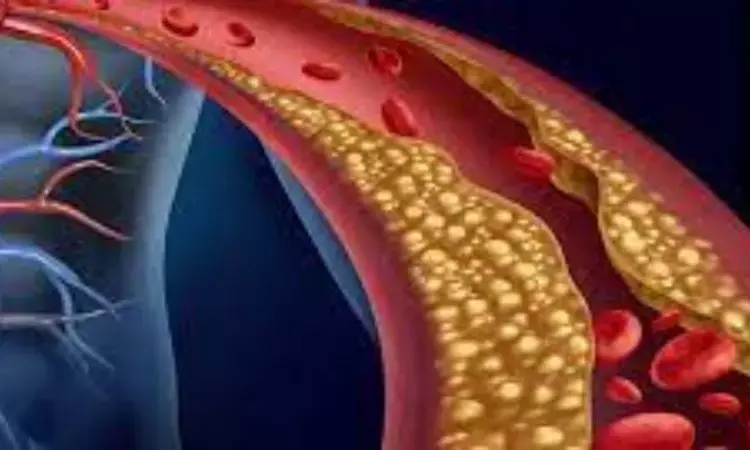- Home
- Medical news & Guidelines
- Anesthesiology
- Cardiology and CTVS
- Critical Care
- Dentistry
- Dermatology
- Diabetes and Endocrinology
- ENT
- Gastroenterology
- Medicine
- Nephrology
- Neurology
- Obstretics-Gynaecology
- Oncology
- Ophthalmology
- Orthopaedics
- Pediatrics-Neonatology
- Psychiatry
- Pulmonology
- Radiology
- Surgery
- Urology
- Laboratory Medicine
- Diet
- Nursing
- Paramedical
- Physiotherapy
- Health news
- Fact Check
- Bone Health Fact Check
- Brain Health Fact Check
- Cancer Related Fact Check
- Child Care Fact Check
- Dental and oral health fact check
- Diabetes and metabolic health fact check
- Diet and Nutrition Fact Check
- Eye and ENT Care Fact Check
- Fitness fact check
- Gut health fact check
- Heart health fact check
- Kidney health fact check
- Medical education fact check
- Men's health fact check
- Respiratory fact check
- Skin and hair care fact check
- Vaccine and Immunization fact check
- Women's health fact check
- AYUSH
- State News
- Andaman and Nicobar Islands
- Andhra Pradesh
- Arunachal Pradesh
- Assam
- Bihar
- Chandigarh
- Chattisgarh
- Dadra and Nagar Haveli
- Daman and Diu
- Delhi
- Goa
- Gujarat
- Haryana
- Himachal Pradesh
- Jammu & Kashmir
- Jharkhand
- Karnataka
- Kerala
- Ladakh
- Lakshadweep
- Madhya Pradesh
- Maharashtra
- Manipur
- Meghalaya
- Mizoram
- Nagaland
- Odisha
- Puducherry
- Punjab
- Rajasthan
- Sikkim
- Tamil Nadu
- Telangana
- Tripura
- Uttar Pradesh
- Uttrakhand
- West Bengal
- Medical Education
- Industry
REMAIN-2 Trial reveals long-term safety and efficacy of recaticimab in patients with non-FH and mixed hyperlipidemia

China: A recent study has shown the long-term efficacy and safety of add-on recaticimab as a treatment option in patients with non-familial hypercholesterolemia (non-FH) and mixed hyperlipidemia not adequately controlled on stable statin therapy. The findings from the REMAIN-2 study were presented at the American Heart Association (AHA) 2023.
Recaticimab is a new PCSK9 inhibitor that can be injected every one to three months. It represents a novel and innovative approach in cardiovascular therapeutics as a long-acting monoclonal antibody (mAb) targeting proprotein convertase subtilisin/kexin type 9 (PCSK9). It belongs to the immunoglobulin G1 (IgG1) class that modulates PCSK9 activity and contributes to the expanding landscape of therapeutic interventions for hyperlipidemia and cardiovascular health.
The REMAIN-2 trial is a multicenter, phase 3, double-blind, randomized, placebo-controlled study conducted in China that aimed to evaluate the long-term safety and efficacy of recaticimab (SHR-1209), as an add-on therapy for patients with non-FH and mixed hyperlipidemia.
The study included 689 participants (mean age 56 years; 64% men) with non-familial hypercholesterolemia and mixed hyperlipidemia not controlled by ongoing moderate or high-intensity statin therapy.
Participants were categorized into three groups: one which received 150 mg of recaticimab or a placebo injection every four weeks, the second group received 300 mg of recaticimab or a placebo injection every eight weeks, and the third group received 450 mg of recaticimab or placebo injection every 12 weeks. The primary efficacy endpoint was determined as the percentage change from baseline to week 24 in calculated LDL-C levels.
The researchers reported the following findings:
- Participants who received recaticimab, regardless of dosing level, had lower bad cholesterol levels at 24 weeks than those receiving a placebo. These levels were maintained at 48 weeks.
- Bad cholesterol was reduced by 62% among those taking recaticimab in the four-week injection group vs. 0% among those in the placebo group, and reduced by 59% vs. +0.4%, respectively in the 8-week group.
- In the 12-week injection group, bad cholesterol was reduced by 51% vs. +2%, respectively.
- Recaticimab demonstrated a comparable safety profile to placebo, with a similar amount of injection site reactions, including soreness and redness, common across both groups during the 48 weeks.
- Other types of lipids like lipoprotein(a) and apolipoprotein B were also reduced significantly in the recaticimab groups compared with the placebo groups.
"Our findings provide encouraging evidence for the safety and effectiveness of recaticimab as an add-on therapy for non-familial hypercholesterolaemia and mixed hyperlipidemia," the researchers wrote.
"Recaticimab achieved a comparable reduction in essential lipid parameters as other PCSK9 inhibitors, offering additional confirmation of significant treatment benefits, even with a less frequent dosing schedule," they concluded.
Dr Kamal Kant Kohli-MBBS, DTCD- a chest specialist with more than 30 years of practice and a flair for writing clinical articles, Dr Kamal Kant Kohli joined Medical Dialogues as a Chief Editor of Medical News. Besides writing articles, as an editor, he proofreads and verifies all the medical content published on Medical Dialogues including those coming from journals, studies,medical conferences,guidelines etc. Email: drkohli@medicaldialogues.in. Contact no. 011-43720751


